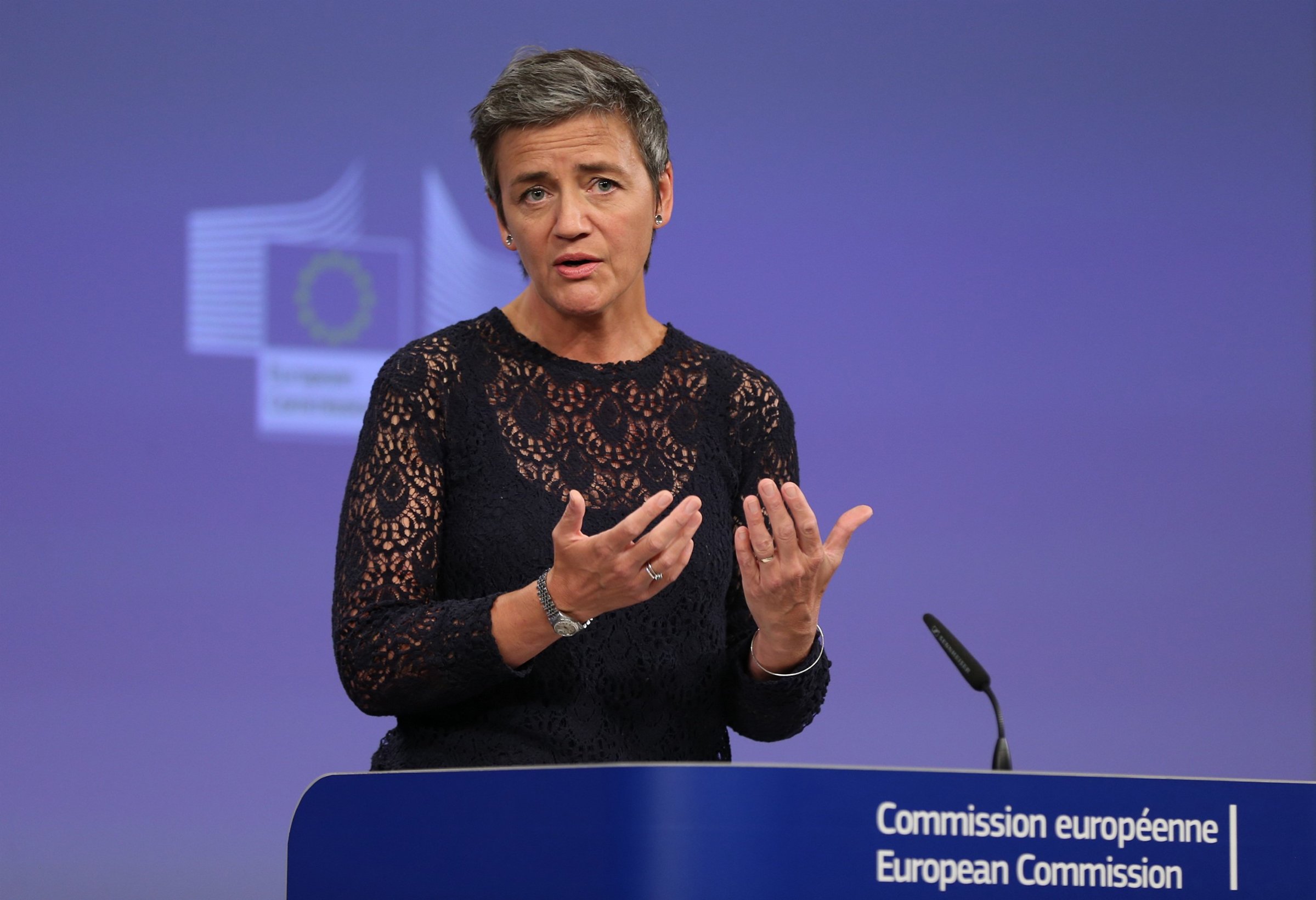
Google was fined a record $2.7 billion by European antitrust officials on June 27 for breaking competition rules by giving its own shopping service priority placement in search results and relegating rivals to where consumers were less likely to click. Here’s how that could affect Europe’s already fraught relationship with Silicon Valley.
ANTI-AMERICAN BIAS?
Google is the latest in a long line of U.S. companies to face stiff penalties from European antitrust officials; others include Facebook, Microsoft and Intel (although Google’s fine was by far the biggest). In 2015, President Obama suggested the bloc’s scrutiny of Silicon Valley companies was a form of protectionism, sparking discussion of anti-American bias.
RISING TENSIONS
But the E.U.’s top antitrust official Margrethe Vestager rejects those claims, and she has data to prove it. Per commission figures, U.S. companies account for just 8% of all antitrust and cartel fines since 2010, while 60% are against E.U. firms. And experts say perceptions of anti-American bias are just a symptom of the fact that the world’s largest IT companies, which deserve tough regulatory scrutiny, happen to be American. Still, the June 27 ruling could further strain relations between the U.S. and Europe, especially in the wake of President Trump’s decision to withdraw from the Paris climate accord.
FUTURE HEADACHES
Google has denied the commission’s claim, and might appeal its decision in court. Meanwhile, Vestager’s action establishes Google as a near monopoly in online search, a precedent that could pave the way for further actions against the Internet giant.
More Must-Reads from TIME
- Where Trump 2.0 Will Differ From 1.0
- How Elon Musk Became a Kingmaker
- The Power—And Limits—of Peer Support
- The 100 Must-Read Books of 2024
- Column: If Optimism Feels Ridiculous Now, Try Hope
- The Future of Climate Action Is Trade Policy
- FX’s Say Nothing Is the Must-Watch Political Thriller of 2024
- Merle Bombardieri Is Helping People Make the Baby Decision
Contact us at letters@time.com